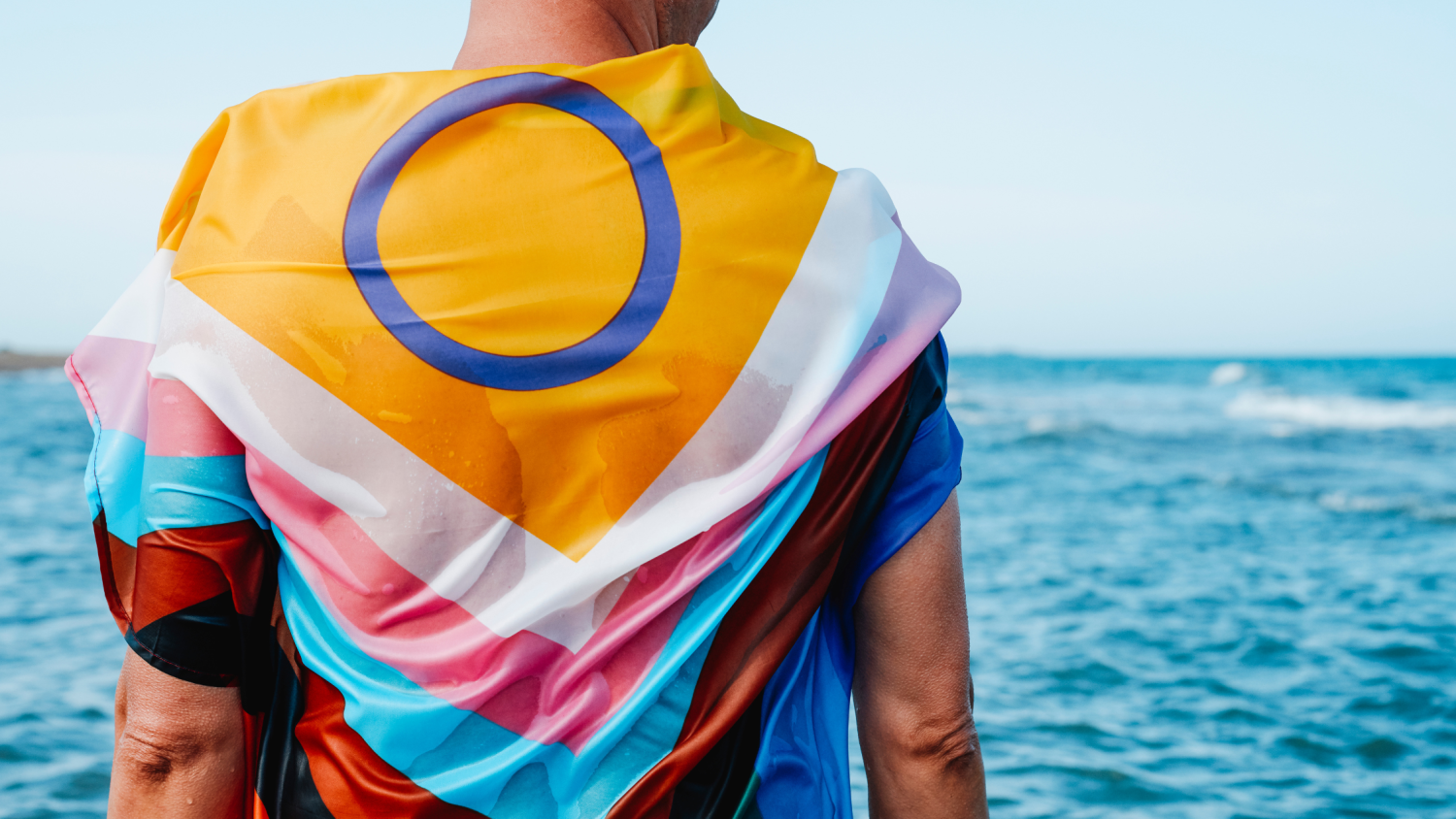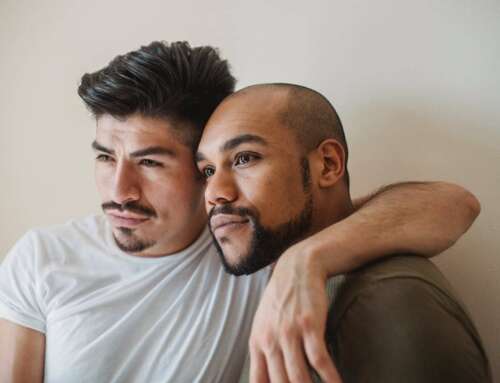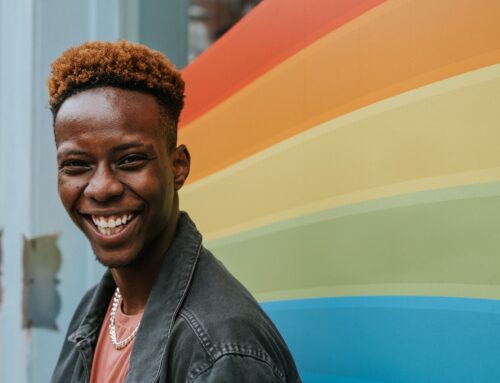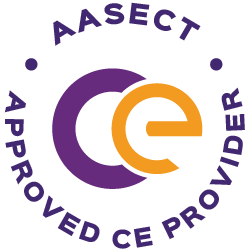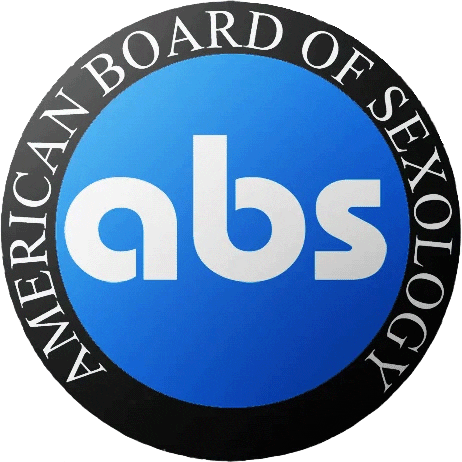If you want to know how to support intersex clients in sex coaching, start here – by embracing complexity, curiosity, and compassion.
Many people are taught that “sex” is simple: male or female, based on anatomy. But biology tells a richer story. Intersex people are born with natural variations in sex characteristics that don’t fit neatly into typical definitions of male or female.
These variations are far more common than many realise – roughly as common as being born with red hair. Yet intersex people often grow up in a world that treats them as medical problems to be “fixed,” rather than humans to be understood. That stigma can leave deep marks on body image, pleasure, and trust.
As sex coaches, we have both an opportunity and a responsibility to create spaces where intersex clients can feel safe, affirmed, and whole.
What Does “Intersex” Actually Mean?
“Intersex” is an umbrella term describing people born with physical or biological traits that don’t fit typical definitions of male or female bodies – including variations in chromosomes, hormones, or anatomy.
It’s not the same as being transgender, which is about gender identity. Intersex is about biology, not identity – though, like anyone, intersex people may identify across the gender spectrum.

Some prefer terms like “people with intersex traits” or “people with variations in sex characteristics.” Always follow your client’s lead when it comes to language.
Understanding intersex experiences on a biological and social level is only the beginning. What matters most in coaching is how we show up – the language we use, the assumptions we unlearn, and the space we create to support intersex clients in sex coaching with empathy and respect. The following principles can help you hold that space with greater awareness and care.
1. De-pathologize the Conversation
When a client says, “My body is wrong,” it’s your cue to gently challenge the binary thinking that created that belief.
You don’t need to “correct” or explain their anatomy – instead, reflect the truth that every body is human, every experience valid.
Ask reflective questions such as:
- “What messages have you received about your body?”
- “How might those messages have shaped how you feel about pleasure or identity?”
Language matters. Shifting from labels like “abnormal” or “disorder” toward affirming language like “variation” can make a world of difference.
2. Listen Without Assumption
Not every intersex person identifies as intersex – and not everyone wants to talk about their medical history.
The most supportive thing you can do is to let the client lead. Follow their language, mirror their terminology, and check in before exploring sensitive topics.
Your role is not to define, but to witness. Listening deeply without assumption is often the first step toward healing.
What issues might show up in session?
Intersex clients might seek coaching to:
- Reconnecting with pleasure or body trust after medical trauma or surgery.
- Navigating disclosure in relationships or dating.
- Unpacking internalised shame or isolation.
- Exploring identity, orientation, or language that feels authentic.
These themes are deeply personal – and often layered with medical and social history. Remember, you’re not a therapist or doctor, but a compassionate guide for self-discovery.

3. Keep Learning Through Stories and Art
Reading medical definitions isn’t enough to understand the intersex experience. The most powerful learning comes through stories.
Personally, I (Nikol) live with MRKH syndrome – a condition that continues to shape my own understanding of embodiment and self-acceptance. If you’d like to see this experience reflected with honesty and warmth, watch the film Fitting In.
You might also explore the documentary Intersexion, which beautifully weaves together voices from across the intersex community.
These films – and the lived experiences they portray – remind us that empathy deepens when we listen to real stories, not just theories.
4. Support Agency and Autonomy
In coaching, your goal is never to define who a client is – it’s to help them define themselves.
Support intersex clients in making choices about pleasure, disclosure, and identity on their own terms.
Encourage gentle self-inquiry:
“What feels right for you to share — and with whom?”
“What kind of pleasure feels safe to explore right now?”
Every person’s path to body trust looks different. Your job is to hold space, not to lead it.
5. Connect Through Community
Healing doesn’t happen in isolation. When appropriate, you can gently suggest community resources where intersex people connect with others who understand their experiences.
Two excellent organizations to know:
interACT: Advocates for Intersex Youth: supporting youth leadership, legal advocacy, and community education.
Outright International’s Global Intersex Program: advancing intersex rights through global human rights advocacy.
Connecting clients to supportive networks can help them feel less alone – and remind them that their story belongs to a much larger movement for dignity and equality.
6. Keep Checking Your Own Biases
Coaching intersex clients invites us to look inward. Reflecting on your own assumptions is essential if you want to support intersex clients in sex coaching with authenticity and care.
Ask yourself:
- How inclusive is my practice, really?
- What assumptions might still shape how I talk about “men” and “women,” “male” and “female,” “masculine” and “feminine”?
Inclusion starts with awareness – and grows through humility.
Holding Space for Every Body
Supporting intersex clients in sex coaching doesn’t mean having all the answers. It’s about holding space where a person’s body, story, and identity are welcomed exactly as they are.
As you build your coaching practice, remember: Your role isn’t to explain someone’s body. It’s to help them reconnect with it.
On Intersex Awareness Day (October 26), take a moment to honour the incredible diversity of human bodies – and recommit to a practice grounded in curiosity, compassion, and respect.
Curious about how to bring inclusive, body-positive coaching into your work?
Explore the Sex Coach U Certification Program – where we train sex coaches to lead with science, compassion, and soul. Learn more about becoming a Certified Sex Coach™ here.
FAQ: Supporting Intersex Clients in Sex Coaching
Q1. Is it appropriate to ask a client if they’re intersex?
Only if the client brings it up or it’s relevant to the goals of your work. Always let them lead – curiosity should never outweigh consent.
Q2. How can I make my intake forms more inclusive?
Ask for pronouns and offer an optional open field like: “Is there anything about your body, identity, or experience that you’d like me to know in order to support you best?”
Q3. Should I learn medical terminology about intersex variations?
It’s useful to be aware, but focus on lived experience over medical labels. Remember: you’re not diagnosing – you’re supporting.
Q4. How can I make my coaching space feel safer for intersex clients?
Display visible signals of inclusion (e.g. Intersex flag, awareness posters), use affirming language, and ensure your confidentiality agreements address bodily autonomy and consent.
Q5. What if I say the wrong thing?
Stay humble. Apologize briefly, correct yourself, and thank your client for helping you learn. Growth is part of inclusion.
